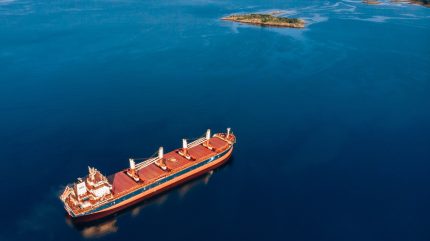
The Maritime and Port Authority of Singapore (MPA) has signed a cooperation agreement with the Port of Rotterdam in the Netherlands to enhance their joint efforts on the Rotterdam-Singapore Green and Digital Shipping Corridor.
MPA first signed a memorandum of understanding with the Port of Rotterdam Authority in August 2022 to create the corridor.
Commenting on the latest agreement, MPA chief executive Teo Eng Dih said: “The continued progress through the Singapore-Rotterdam Green and Digital Shipping Corridor is testament to the role of public-private collaboration to bring decarbonisation and digitalisation initiatives from ideas to implementation.
“We look forward to collaborating with more partners to bring impact to one of the world’s busiest shipping routes and accelerate the decarbonisation and digitalisation of the shipping industry.”
The partnership has brought together 28 stakeholders across the container shipping value chain to advance the use of sustainable fuels and digital solutions along the 15,000km shipping route.
The initiative aims to reduce greenhouse gas emissions from large container vessels by 20% to 30% by 2030 while promoting global standards for “efficient” port calls, cargo flow, and paperless handling.

US Tariffs are shifting - will you react or anticipate?
Don’t let policy changes catch you off guard. Stay proactive with real-time data and expert analysis.
By GlobalDataThe collaboration concentrated on testing and scaling sustainable fuels, particularly bio- and e-variants of ammonia, methanol, and methane. Working groups have also been established for each fuel type to accelerate adoption.
Since 2022, pilot projects have included the first bunkering of mass-balanced liquefied bio-methane at the Port of Rotterdam, with a similar trial planned in Singapore for 2025.
Additional achievements included a Life Cycle greenhouse gas Assessment (LCA) for green ammonia as a marine fuel and support for the International Association of Ports and Harbors’ (IAPH) Port Readiness Framework to assess port preparedness for sustainable fuel supply.
The next phase of collaboration will focus on further studies and trials for bio-methane, methanol, and ammonia bunkering, as well as financial mechanisms to address cost barriers for low- and near-zero emission fuels.
Furthermore, the ports have successfully tested port-to-port data exchanges for vessel arrival and departure timestamps.
This initiative, aligned with International Maritime Organization (IMO) digital efforts, aims to optimise vessel arrival planning and port operations.
Ship-to-shore data exchange infrastructure has also been developed to streamline port clearance processes, reducing manual data entry errors through automation.
A trial of global standards and digital solutions commenced in March 2025, with an enhanced version set for testing later in the year.
Government and industry stakeholders are advancing these discussions during the ongoing Singapore Maritime Week, working towards the corridor’s sustainability and efficiency goals.
Port of Rotterdam CEO Boudewijn Siemons said: “By bringing together parties across the entire value chain, the Rotterdam-Singapore Green & Digital Shipping Corridor has helped to make first, valuable steps towards the decarbonisation of international shipping while also improving efficiency of trade and setting new industry standards.
“At the same time, we still have a lot of work ahead of us and we are looking forward to continue our work on this together with the Maritime and Port Authority of Singapore.”



